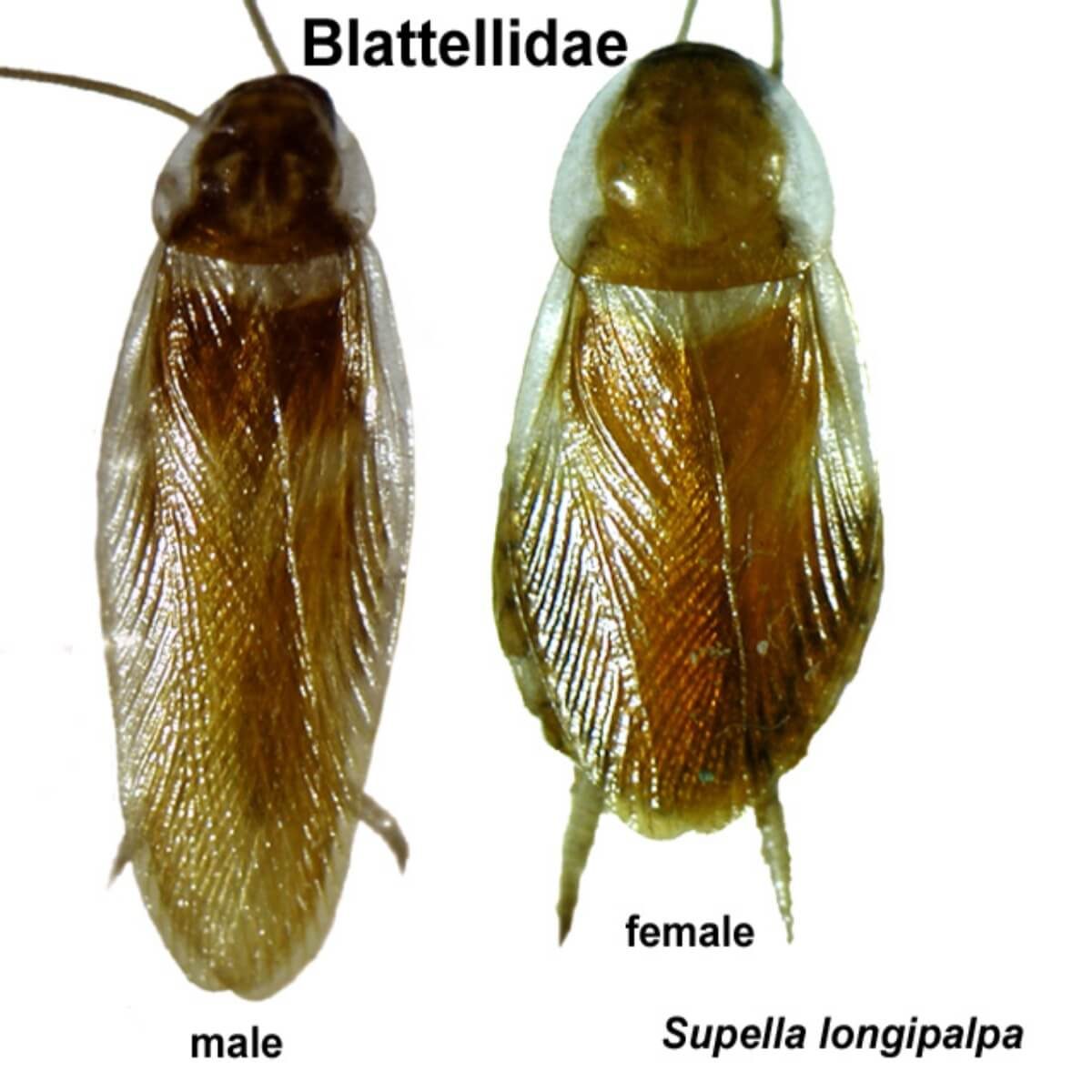What do brown-banded cockroaches look like and how do you get rid of them in the home and yard?

How to Identify and Get Rid of Brown-Banded Cockroaches

Known for the bands on the back of their body, the Brown-Banded cockroach is a native pest from Africa, seeking shelter in warm climates to feed and reproduce.
On This Page
What are Brown-Banded Cockroaches
Brown-banded cockroaches (Supella longipalpa) are one of the smaller cockroaches infesting homes, averaging nearly a half-inch long. Found primarily in the Northeast, Midwest and the South, this particular species prefers warm and drier locations because it can survive longer without water.
What do Brown-Banded Cockroaches Look Like
The Brown-Banded cockroach has a light brownish exterior, getting its name from brownish bands running along the back of its wings and abdomen. With an oval body the males stretch out a little further, while the females are short and stout. Six legs and two long antennas make up the rest of the body, giving an overall appearance similar to the German cockroach.
Brown-Banded Cockroach Behaviors
Unlike the lower-dwelling Oriental cockroaches, Brown-Banded cockroaches prefer higher locations such as cabinets and attics. They don’t need water like some other roach species, so expect to find them in drier rooms like the bedroom or living room.
They are nocturnal scavengers, avoiding the light when possible. Omnivores by nature, these pests are opportunity feeders, looking to eat any and everything they can find around the home.
Brown-Banded Cockroach Life Cycle
The average lifespan for a Brown-Banded cockroach is four to ten months; it goes through the typical cockroach life cycle stages of egg, nymph and adulthood. The female can lay 12 to 16 egg capsules containing around 10 to 18 eggs, for an average total of 200 eggs throughout its life.
Signs of Brown-Banded Cockroaches
Brown-Banded cockroaches are nocturnal, coming out at night to feed, find shelter and mate. The signs of their presence:
- Visual
- Droppings
- Eggs
How to Get Rid of Brown-Banded Cockroaches
Steps for getting rid of Brown-Banded cockroaches include cleaning, sealing off holes and cracks in the foundation, and setting out baits and traps to attract and kill them. Look in cabinets, storage containers and other hidden locations for these pests. If traps and other methods fail, contact a professional exterminator to help find and control infestation problems.
Brown-Banded Cockroach Safety
Like many of its companions, the Brown-Banded cockroaches are excellent transmitters of disease and bacteria through their droppings, interactions with food, excreted smells and skin. If discovered in the home, take action to remove these harmful pests.
Cockroach Resources
For more information about cockroaches and what it means when you find this pest in your home or business, check out these pest control articles.
- Types of Cockroaches
- American Cockroach
- German Cockroach
- Oriental Cockroach
- Brown-Banded Cockroach
- Smokybrown Cockroach
- Florida Woods Cockroach
- Pennsylvania Wood Cockroach
- Asian Cockroach
- Australian Cockroach
- Madagascar Hissing Cockroach
- Flying Cockroaches
Sources
- https://extension.umn.edu/insects-infest-homes/cockroaches#brown-banded-cockroach-137711
- https://www.epa.gov/managing-pests-schools/cockroaches-and-schools


















